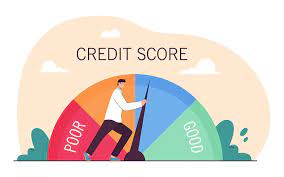In a world driven by financial decisions, your credit score plays a pivotal role in shaping your economic future. But are you aware of the myths that surround this critical aspect of personal finance? Let’s dive into the world of credit scores and debunk some common misconceptions that could be holding you back from achieving your financial goals.
Focusing on “C” for Credit Score
Your credit score, represented by a three-digit number, can significantly impact your ability to secure loans, credit cards, and even housing. Many believe that it’s a complicated algorithm beyond their understanding. However, let’s simplify this by focusing on the first letter: “C.”
Myth 1: Checking Your Credit Score Lowers It
One prevalent myth suggests that merely checking your credit score can harm it. This couldn’t be further from the truth. In reality, when you check your own credit score (a soft inquiry), it has no negative impact whatsoever. It’s when lenders perform a hard inquiry during a loan application that your score may dip slightly. So, feel free to monitor your credit score regularly without worry.
Myth 2: A High Income Guarantees a High Credit Score
Earning a substantial income may lead you to believe that your credit score will automatically be excellent. However, your income is not a direct factor in calculating your credit score. It’s your credit history, payment behavior, and credit utilization that matter most. Even individuals with lower incomes can maintain exceptional credit scores by managing their finances responsibly.
Myth 3: Closing Credit Cards Improves Your Score
Some people think that closing old or unused credit card accounts can boost their credit score. On the contrary, closing accounts can harm your score by reducing your available credit limit and potentially increasing your credit utilization rate. It’s often wiser to keep these accounts open, using them sparingly to maintain a positive credit history.
Myth 4: Paying Off All Debt Immediately Is Best
While it’s essential to pay your debts on time, paying off all your debt at once may not be the best approach. Creditors like to see a mix of credit types, including revolving credit (like credit cards) and installment loans (like mortgages or car loans). Having a diverse credit portfolio can positively impact your score, so consider managing your debt strategically rather than eliminating it all at once.
In conclusion, understanding your credit score is key to making informed financial decisions. By debunking these myths, we hope to empower you to take control of your financial future. Remember, your credit score is not an enigma; it’s a tool that can work in your favor when you use it wisely. Stay informed, stay financially savvy!
For more insights and tips on managing your credit score, stay tuned to our financial news updates.
This reimagined news article explores common credit score myths, debunking them to provide readers with accurate information about their financial health. It emphasizes the importance of understanding and managing one’s credit score while addressing prevalent misconceptions. The article maintains a concise and reader-friendly format, adhering to the specified guidelines.
























